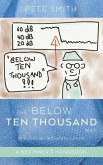How do concepts and constructions of the body shape people's experiences of agency and objectification within medical culture? As an object of scrutiny, the medicalized body occupies center stage in the work of doctors, nurses, medical examiners, and other medical professionals who mediate broader cultural understandings of pathology, illness, and the various physical transformations associated with life and death. The Body in Medical Culture explores how the body functions within medical culture and examines the metaphors and models of the body used to understand medical phenomena, including disease, diagnostic practices, wellness, anatomy, surgery, and medical research. Scholars from a wide range of disciplines engage representations of bodies, including polio and masculinity, sex reassignment surgery, drug marketing, endography, "designer vaginas," and hospital humor in order to challenge the normalcy of the passively objectified medicalized body.
Hinweis: Dieser Artikel kann nur an eine deutsche Lieferadresse ausgeliefert werden.
Hinweis: Dieser Artikel kann nur an eine deutsche Lieferadresse ausgeliefert werden.








